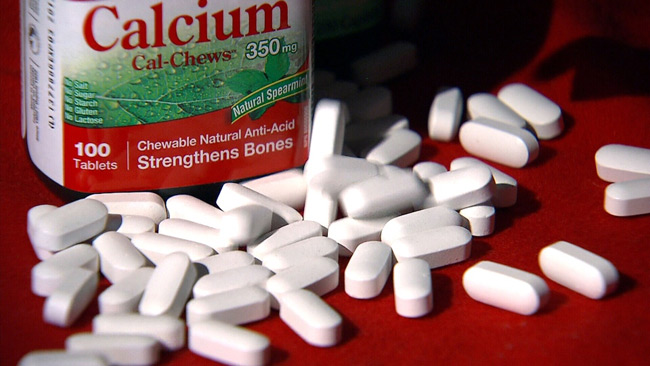
Taking calcium and vitamin D can help prevent broken bones in older women. However, this benefit may be cancelled out by an increased risk of heart attack and stroke.
With the highest reported risk of hip fractures in the word, Norway has good reason to consider the benefits and risks of calcium supplements. The challenge is that too little calcium and vitamin D in your diet leads to an increased risk of osteoporosis and broken bones, which taking supplements has been shown to help prevent.
However, some studies have also shown that taking supplemental calcium may also increase your risk of heart attack and stroke.
“We conclude that the moderate effect of supplemental calcium and vitamin D on the risk of fractures is not large enough to outweigh the potential increased risk of cardiovascular disease, specifically in women who are at a low risk of bone fracture,” said Gunhild Hagen, a PhD candidate at the Norwegian University of Science and Technology’s (NTNU) Department of Public Heath and General Practice who was first author of an article recently published in Osteoporosis International.
Analytical model of health effects
Researchers at NTNU and the University of Oslo used an advanced analytical model to investigate the total health effect of taking a combined calcium and vitamin D supplement, compared to taking no supplements, based on a group of healthy women aged 65 with a BMI of 24 kg/m2.
“Our analysis shows that if 100,000 65-year-old women take 1000 mg calcium every day, 5890 hip fractures and 3820 other fractures would be prevented. On the other hand, as many as 5917 heart attacks and 4373 strokes could be caused. So for women of this age, the risks outweigh the benefits,” the authors of the study wrote in an article in Aftenposten, one of Norway’s national newspapers.
Recent studies of the effect of calcium supplementation on the risks of heart attack and stroke differ in their conclusions, so the researchers used three different scenarios based on results from previous studies.
The high-risk model predicted that more than 10,000 heart attacks and strokes would be caused by supplemental calcium and vitamin D in a group of 100,000 65-year-old women, whereas the medium-risk model predicted about 5000.
Both models showed that the number of years of high-quality life lost by taking calcium was higher than the number of years of high-quality life saved by preventing broken bones.
Benefits are nullified
The study also investigated the cost-effectiveness of offering 65-year-old women supplemental calcium and vitamin D, assuming that the women were at low risk of cardiovascular problems. In this case, the authors concluded that providing supplements is cost-effective and good for public health, given that the benefits outweigh the risks.
If the supplement increases the risk of heart attack and stroke, however, both the savings and the public health benefits are lost.
Hagen says one possible solution is to prescribe medicines that help prevent osteoporosis along with vitamin supplements.
“If we provide a preventative osteoporosis medication in addition to a supplement, it will increase the effect of preventing bone fractures, and have a positive risk/gain ratio, resulting in reduced costs,” says Hagen.
Don’t know if calcium increases risk of heat disease
The researchers point out that it isn’t possible to conclude that calcium increases risk of cardiovascular disease, and that the analysis needs to be seen in light of this uncertainty.
At the same time, their models are simplifications that can’t replace studies done on actual people.
“We don’t know for sure if calcium has this negative effect, but to be careful, we should choose to give another treatment to help prevent broken bones in older women,” says Hagen.